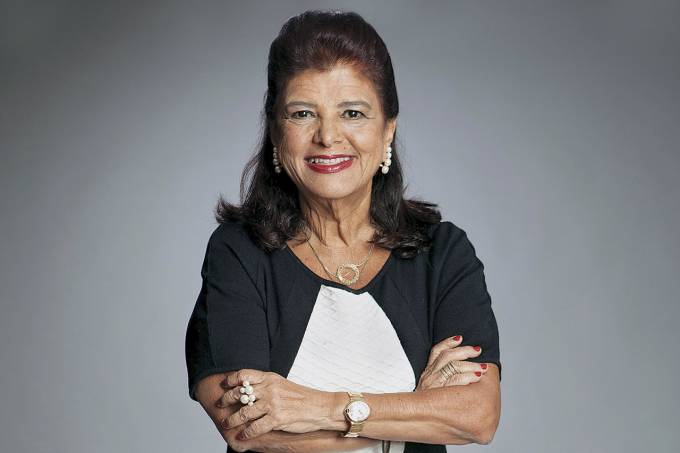Why do we need leaders with Social Astuteness?

We are increasingly faced with contexts that reveal high levels of uncertainty. In this scenario, leadership takes on other contours. As the level of complexity increases, a leader’s performance expands beyond the leader-followers relationship and involves peers, superiors, strategic partners, customers, and society as a whole.
The leader starts to act in different “political arenas,” which demands developing and mobilizing his political competence. This is a competence related to the human capacity for interaction and social effectiveness in working towards a goal and independent of formal power. In this sense, the legitimacy of leadership is supported by the aggregation of value for all stakeholders.
The pandemic showed a growing degree of interdependence on a global scale. It is no longer possible to predict precisely when a crisis will happen, and having good relationships can be fundamental to guaranteeing access to resources and other solutions that contribute to dealing with unforeseen problems. We need leaders who know how to build trusting relationships with their employees, customers, partners, suppliers, and even other countries.
Unfortunately, we live in a society with high levels of polarization with leaders who reinforce the “us against them” instead of reconciling differences, using common sense in their decision-making, and evaluating issues in a contextual, rather than absolute, way. The feeling is that the leaders of the poles present a firm conviction of their beliefs and an active voice and end up fomenting discord. We need leaders who develop their political competence in ways that seek common sense and raise their voices in search of a more united and collaborative society.
The expression “political competence” comes from the junction of two terms political will and political skill. In recent decades, research has emerged that positively relates this competence to leadership effectiveness, facilitation of followers’ performance, support in the mobilization of coalitions, and management of sharing of meaning.
Organizational politics deals with the informal dimension of organizations and social interactions in the workplace. The notion of politics was born from the idea that when interests are divergent, individuals must seek ways to
reconcile their differences through consultation and negotiation, thus avoiding totalitarian forms and rules.
The political influence system is described as one that forces the “responsible person” to fight for what they believe is right, encourages a variety of “voices” that need to be heard, and each “voice” needs to draw its own conclusions about the needs of the company as a whole.
Most people see politics as exclusively negative. However, by considering the neutrality of the term, it is possible to broaden their understanding and include their positive perspective. On the extreme side of the continuum, we have the “politician” who acts for his own benefit in a central area, the one who stays “on the fence” to maintain contacts with groups of interests different from his own and at the opposite extreme, we find leaders who act with benevolence, stand in the face of situations of injustice, know how to deal with and respect opinions different from their own, and seek harmonious solutions without the use of violence. The great examples of leaders with political competence in history are Gandhi, Mandela, and Martin Luther King.
In Brazil, a successful corporate leader with a high degree of political competence is undoubtedly Luiza Helena Trajano, who, during the pandemic, has demonstrated her competence in various challenges. She dares to expose herself. By adhering to the “don’t resign” and creating the “United for vaccine” community, she showed a willingness to make it happen, taking risks under uncertainties instead of omitting herself. She admitted that she does not know if it will be possible to reach the goal of all vaccinated by September as initially proposed, but what led her to act was her awareness that something needed to be done for the country and its population.
She believes that vaccination is the only solution. She also knows that when September arrives, the goal will need to be revised, and some mistakes will need to be evaluated and admitted, but she can adapt and is guided by her focus on the common good.
She is also competent at taking a stand in potentially conflicting situations and uses her authenticity to clarify her good intentions. By implementing the exclusive trainee program for black professionals, she took on the fact that the number of black professionals in leadership positions is very low or non-existent in most companies, including Magazine Luiza. She knows that this reality needs to be changed. She took on the responsibility of seeking this change within the company she runs and thus inspiring other
organizations to do the same. For her, quotas are part of a transitory process to correct inequalities that would otherwise be perpetuated.
Luiza Helena Trajano declares herself a natural politician; since she was a little girl, she was bothered by inequalities, questioned, and tried to do something about it. It demonstrates its political competence by giving people a voice, creating participatory processes, encouraging conciliation, and not fostering polarization.
The group “Women of Brazil,” a non-partisan community presided over by her, seeks equality of gender and race. Now, it begins to have the participation of male members who join the cause and are proud to participate in the group “women of Brazil.”
The development of political competition can be a significant differential in the current context for leaders to act in favor of what they believe is right, mobilize people, establish constructive connections, and create a more participatory, humane, and sustainable environment.
